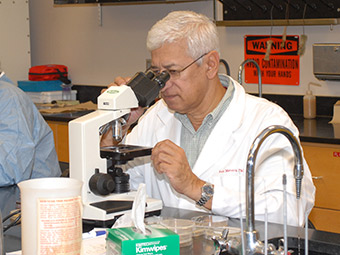Document Type
Article
Publication Date
3-2014
Abstract
Understanding genetic drift is crucial for a comprehensive understanding of biology, yet it is difficult to learn because it combines the conceptual challenges of both evolution and randomness. To help assess strategies for teaching genetic drift, we have developed and evaluated the Genetic Drift Inventory (GeDI), a concept inventory that measures upper-division students’ understanding of this concept. We used an iterative approach that included extensive interviews and field tests involving 1723 students across five different undergraduate campuses. The GeDI consists of 22 agree–disagree statements that assess four key concepts and six misconceptions. Student scores ranged from 4/22 to 22/22. Statements ranged in mean difficulty from 0.29 to 0.80 and in discrimination from 0.09 to 0.46. The internal consistency, as measured with Cronbach's alpha, ranged from 0.58 to 0.88 across five iterations. Test–retest analysis resulted in a coefficient of stability of 0.82. The true–false format means that the GeDI can test how well students grasp key concepts central to understanding genetic drift, while simultaneously testing for the presence of misconceptions that indicate an incomplete understanding of genetic drift. The insights gained from this testing will, over time, allow us to improve instruction about this key component of evolution.
Recommended Citation
Price, Rebecca M., et al. "The genetic drift inventory: a tool for measuring what advanced undergraduates have mastered about genetic drift." CBE—Life Sciences Education 13.1 (2014): 65-75.
Creative Commons License

This work is licensed under a Creative Commons Attribution-Noncommercial-Share Alike 3.0 License.
Publication Title
CBE—Life Sciences Education
DOI
10.1187/cbe.13-08-0159



Comments
© 2014 R. M. Price et al.